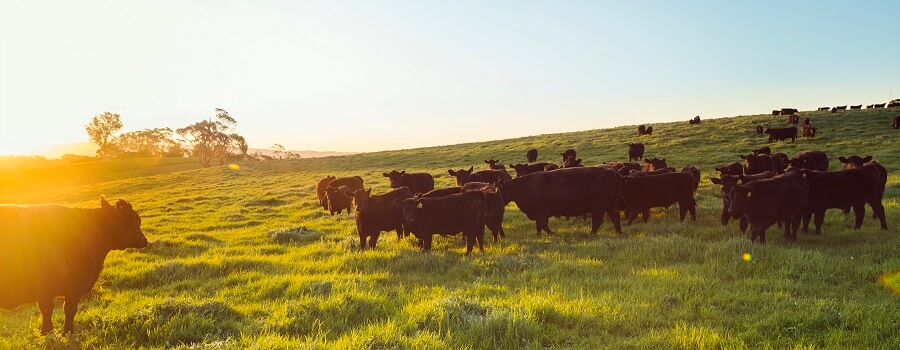Buying a farm? Key things to add to your ‘To Do’ list before settlement
1 Jun 2021
With Real Estate Institute of New Zealand (REINZ) numbers showing more farms being bought and sold for the three months to the end of April 2021, as compared to 2020, BNZ’s Director – Corporate Agribusiness, Rowen Waterworth shares key things for your ‘To Do’ list when buying for the first time.
Buying your first farm will probably be one of the most exciting and stressful times of your life. On May 24th 2021, REINZ released their latest data, showing farm sale numbers were up 89% for the three months to the end of April 2021 (compared to 2020) and dairy farms were up 120%. Stronger dairy payouts, lower interest rates and fewer capital constraints supports the idea that the 2021 spring sales market should be equally strong.
But just like buying your first home, there will be many unfamiliar tasks and processes you need to follow to get everything right.
If you’ve found your ideal farm and have finance approved there are still a few things to add to your ‘To do’ list before moving day:
Triple check the Sale and Purchase agreement
Once you sign on the dotted line it’s challenging to go back and change any of the conditions, price, or what you thought you were buying. The Sale and Purchase agreement is the most essential document to get advice on before you sign it, so make sure you speak to your lawyer first. Some things you should consider are:
- The provision for existing feed. On Day One, you’ll want to know the agreed feed is accurate (the correct quantity and quality). Consider having an independent assessment conducted to ease your mind (such as the measurement of silage stacks) to make sure you’re getting what you paid for.
- Ensure the list of chattels is sufficiently detailed to avoid disputes or disappointment when you find out the tractor has disappeared. Consider items that are not as obvious, for example, electric fence units, water pumps (rather than a catch all of “water improvements”) or outbuildings.
- Forensically pick apart the resource consents relevant to the farm to remind yourself of any constraints or limitations. Better yet, ask an external consulting company to support this due diligence (DD) process to ensure you are aware of all of the impending environmental regulations and ensure there are no surprises about things like land use or water consents down the track.
- Check if any property purchased includes housing for staff. If it does, check if the housing is up to Healthy Homes standards upon purchase or you will need to create a plan and budget to rectify it as soon as you can following the purchase. This is particularly applicable if a house has previously been owner-occupied by the vendors, but you’re planning to utilise it as staff accommodation.
- The treatment of GST and depreciation of land, buildings, equipment and stock. This is the time to get a farm accountant or adviser alongside you to ensure it’s to your benefit.
- Ensure you have all the conditions you require included in the agreement, with adequate time frames to fulfil the conditions e.g. a due diligence condition to enable you to complete your investigations on the property.
It’s also recommended to review the property information or Land Information Memorandum held by the Regional and District Councils on the farm, such as rates, consents, permits, code of compliance for work done on the property and hazard information. For example, if you are looking at a farm in Canterbury, Environment Canterbury has information on council services, school zones, earthquake claims, land improvement agreements, wells, natural hazards, pests, air quality and if the property is prone to flooding.
Search your local council to find out precisely what you’re signing up for and to reassure yourself all is well.
The pre-purchase inspection
Completing a thorough pre-purchase farm inspection is critical. If possible, bring along an experienced farmer or expert in their field to help you. Some things you might consider are:
- Test the soil for any toxic or hazardous waste you may be liable to clean up
- Confirm access roads are well-maintained and accessible to heavy equipment
- Check compliance for effluent, discharge, waste and any environmental impacts
- Ensure you own any water rights (rivers, dams, irrigation, springs), and have checked rainfall records in the area
- See if there are trees included in the Emissions Trading Scheme (ETS) and what that means
- Review any health and safety or ACC regulations and ensure it’s a safe working environment.
Schedule the inspection well in advance of any purchase commitments and cross-check the chattels, conditions of the home or buildings etc. Settle any queries to avoid any impact on settlement. It’s much harder to argue a point once you’ve purchased.
Avoiding stress
Did I mention the potential stress? Here are a few causes I’ve seen buyers encounter along the way, and ways to mitigate some of them:
- Going “unconditional” on a farm purchase before obtaining a Letter of Offer for finance from your bank. Know you have the money to pay for the farm on settlement day- this could be from using some or all of the equity in your herd, family funds, third-party finance for plant and machinery, your capital or borrowing from the Bank. Always speak to your bank first before you make an offer.
- The possible double workload of finishing up your current role and getting ready to hit the ground running on the new farm.
- Unexpected costs or improvements that are needed immediately upon purchase. Typical culprits are new fencing, unplanned feed purchases, legal and compliance costs and the downtime to get used to a new environment. Get firm quotes from all suppliers in advance, so there are no surprises (and build in a cash buffer for the inevitable budget overrun).
- The systems you need in place to keep track of performance to compare actual to budget performance. On-farm financial software has improved greatly in recent years and it is worth reviewing which ones would work for you.
- The bank and lawyers. Being as well organised as possible can help to ensure drawdowns and settlements go as smoothly as possible. Confirm finance well in advance and arrange to execute the bank and legal documents as early as possible to prevent delays
- If any existing staff are employed as a condition of the purchase and the detail of their employment contracts.
If you can address these issues now, it’ll be much plainer sailing later. Last, but not least, you’ll possibly be moving house, relocating the family to a new area, putting the kids into new schools and blending into a new community. The farm move may seem easy after this!
Here at BNZ we look forward to supporting more of our customers into their first farm. Yes, there is a lot of hard work ahead, so make it easier on yourself before you start by ensuring you’ve spoken to your lawyer and your bank, conducted your due diligence and have all your ducks nicely lined up. Be organised, conduct your due diligence and think outside the farm. Good luck.
The information and recommendation(s) in this article are the personal views of Rowen Waterworth and do not necessarily represent the views of BNZ, or its related entities.
This article is solely for information purposes and is not intended to be financial or legal advice. If you need help, please contact BNZ or your financial or legal adviser. Neither BNZ nor any person involved in this article accepts any liability for any loss or damage whatsoever which may directly or indirectly result from any information, representation or omission, whether negligent or otherwise, contained in this article.
Lending criteria, terms and conditions and fees apply.
References to third party websites are provided for your convenience only. BNZ accepts no responsibility for the availability or content of such websites.




